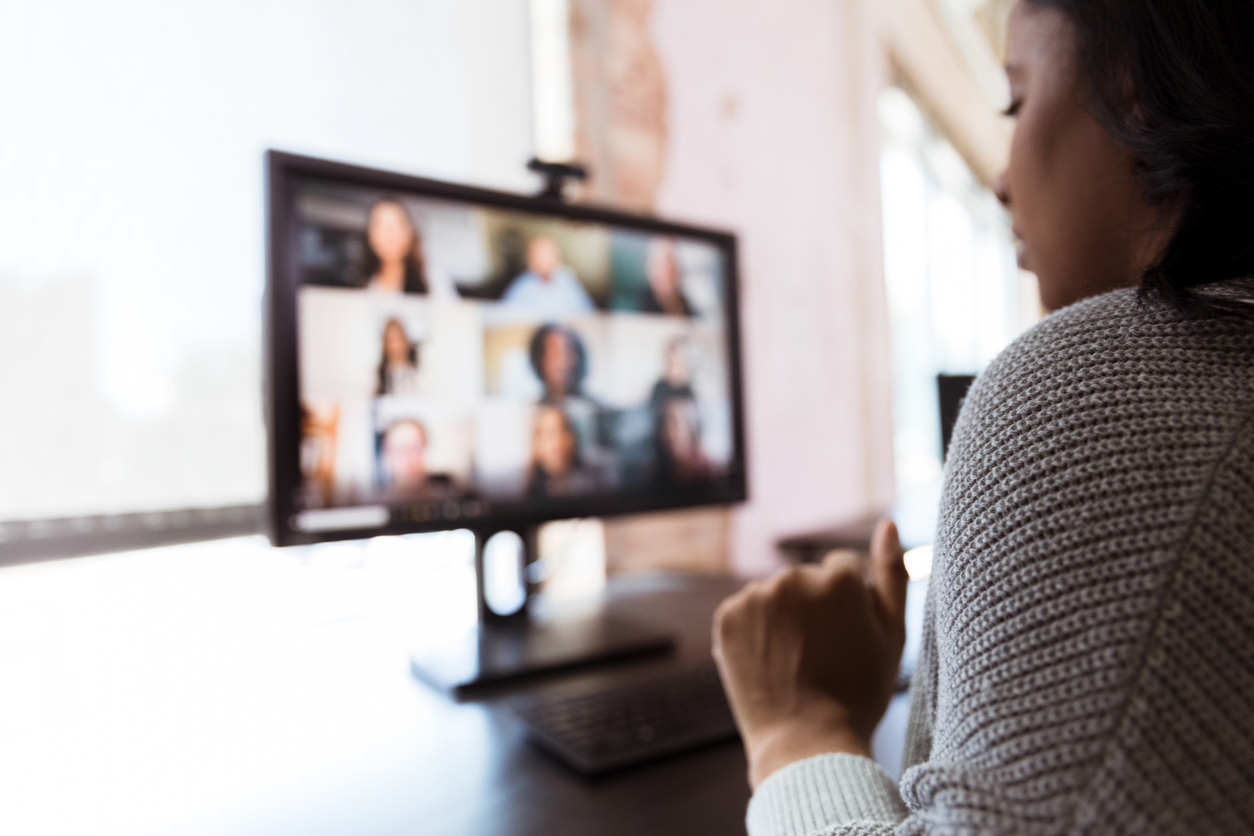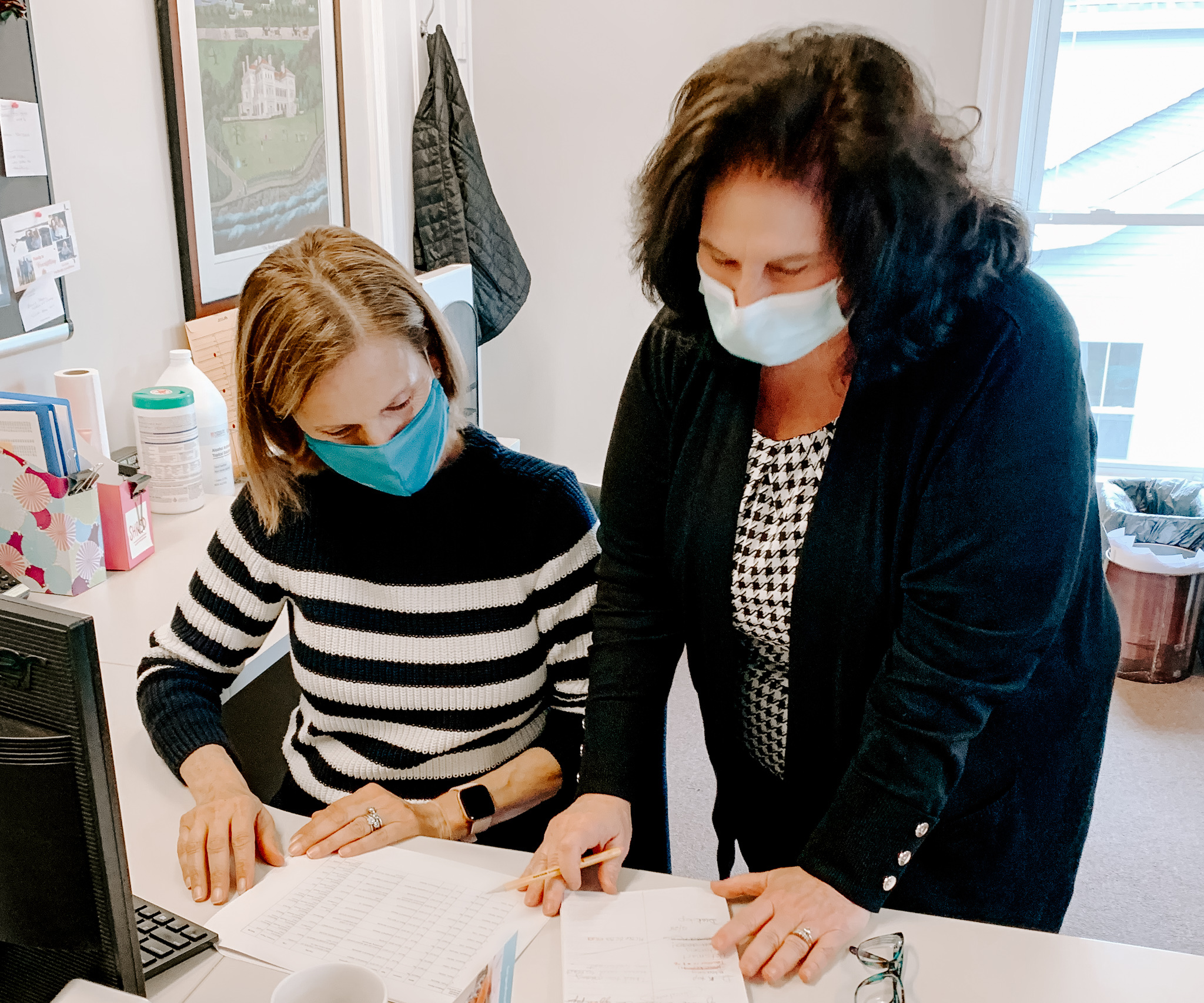It seems like only yesterday when HopeHealth Volunteer Manager Nicky D’Abrosca and Volunteer Coordinator Robin Blanchette had to call scores of volunteers to inform them they had to pause patient visits while public health advisories remained in effect.
“That was a really tough week,” Nicky says recalling the uncertainty and fear surrounding COVID-19 lockdowns and stay-at-home orders that began in the middle of March 2020.
“The very first thought for me was this is going to be a huge loss for our patients, their families, and our volunteers.”
And it was for those volunteers who had been seeing patients regularly and formed strong bonds over time. But volunteer opportunities didn’t come to a complete stop. Nicky and her colleagues found ways to turn losses into gains by adapting volunteer roles during the pandemic.
Now, just in time for National Volunteer Week — which runs through April 24 — HopeHealth volunteers who are fully vaccinated against COVID-19 have started to return to many of their pre-pandemic roles.
Volunteers who complete an hour-long training on COVID-19 screening and visitation protocols can go back to spending time in person with patients and families, running errands and coming back to HopeHealth’s offices to help with administrative work.
Volunteers are excited to start returning to the their previous roles, but they were also happy that technology kept them engaged during the pause.
Adapting to online volunteering

“Zoom was fun, seeing the people you otherwise haven’t seen,” says Nancy Penta, who has been a HopeHealth administrative volunteer since 2011.
Nancy continued helping out the volunteer office from home and had regular Zoom meetings with Nicky and Robin. But she was thrilled to recently spend three hours in the volunteer office at 1085 North Main Street in Providence. She helped unpack boxes and return files to a cabinet. They had been packed up to allow for renovation work in the office.
“It felt good to be back,” she says. “It was nice to see everyone in person and connect.”
Volunteer John Corvese became an assistant for the online community education programs delivered by Clinical Educator Lisa Wasson, RN. He helps Lisa by taking attendance and monitoring the chats to alert her when a participant has a question. He continues to be a grief support volunteer keeping in touch by regular phone calls with two people who lost a loved one before the pandemic.
A newly formed dementia caregiver support group, which John co-led, only met in person three times last winter before it had to pause when the pandemic hit. When the opportunity came to re-launch the support group online through Zoom, John was willing to overcome his initial concerns about adapting to new technology.
“It’s a feather in the cap of the management and the clinicians of HopeHealth to be able to continue meeting the needs of their patients and caregivers throughout this whole thing. I’m just privileged to be a very small part of it.”
“I was a little apprehensive. I wasn’t sure how to interact with a camera and a microphone and not be in person and provide support,” says John, who became a volunteer for HopeHealth in 2017.
“Over time you get used to it. I got mileage on it now and I feel very comfortable with it.”
The new dementia caregiver support group had only three members when it started in-person. After a brief lull before transitioning to Zoom, John says there are now about a dozen members.
“I can’t say enough good things about HopeHealth because these Zoom support groups were nonexistent beforehand,” John says.
“It’s allowed HopeHealth to reach a much wider audience. It’s a feather in the cap of the management and the clinicians of HopeHealth to be able to continue meeting the needs of their patients and caregivers throughout this whole thing. I’m just privileged to be a very small part of it.”
Volunteer Judi Rosenthal co-facilitates a loss of spouse grief support group for which attendance has significantly increased in the transition to online. She was comfortable doing Zoom right from the start and thinks many newcomers felt the same way about the virtual platform. It was a very rare occurrence when a participant didn’t want to turn their camera on, she says.
“In some cases for people, it was easier to come on Zoom than to walk into a room of strangers,” Judith says.
Judith also observed that the pandemic changed the gender ratio of participants, drawing more widowed men to the support group.
“Prior to COVID and Zoom, we would have maybe one or two men. Now I think we have more men than women, or at least equal,” she says.

Coping with isolation
The pandemic proved the most challenging for volunteers caring for patients in long-term care facilities where COVID-19 took a devastating toll.
“It was really hard for the volunteers who had patients in nursing homes,” Nicky says.
Some volunteers never had a chance to say goodbye to patients who became seriously ill from the virus and passed away. But the pandemic gave Nicky and her colleagues time to look at some of the functions of the volunteer office and make improvements. Some tasks have been streamlined to be completed using online forms, eliminating paperwork.
Spending so much time on Zoom has also given staff a new perspective on working together. It’s also made Nicky’s Yorkshire terrier Remy a star of the screen for the volunteers who saw her dog on Zoom.
“We’ve become so much closer to the volunteers and we just know them so much better,” Nicky says. “We’re all at home on Zoom so you get to see my dog and we get to see other people’s kids, things we wouldn’t have seen if we were having these meetings at the office.”
A volunteer fits right in

On the day she came back to the volunteer office, Nancy Penta dug a pair of navy blue dress pants out of her closet that she hadn’t worn since last winter when she wore them to church.
They still fit just fine, just like she does in her role contributing to HopeHealth’s work making a difference in the lives of patients and their families.
“Thank God,” says Nancy, who consistently takes a 40-minute walk five times a week.
Nancy is a retired administrator who spent 23 years in the office at an engineering firm coordinating permit applications with municipalities and making sure deadlines were met. Her organizational skills, attention to detail and assertiveness made her well qualified when HopeHealth needed help keeping track of volunteers. Nancy makes sure they submit proof of up to date vaccinations, car insurance coverage and a valid driver’s license.
If they didn’t, she emails or calls with gentle but firm reminders. Her effectiveness at making sure other volunteers comply with these requirements led another volunteer to affectionately nickname her “The Sheriff.”
For the time being, Nancy will continue doing most of her volunteering for HopeHealth at home as social distancing protocols continue.
“It’s working out very well, but it’s not like being at the office,” Nancy says.

